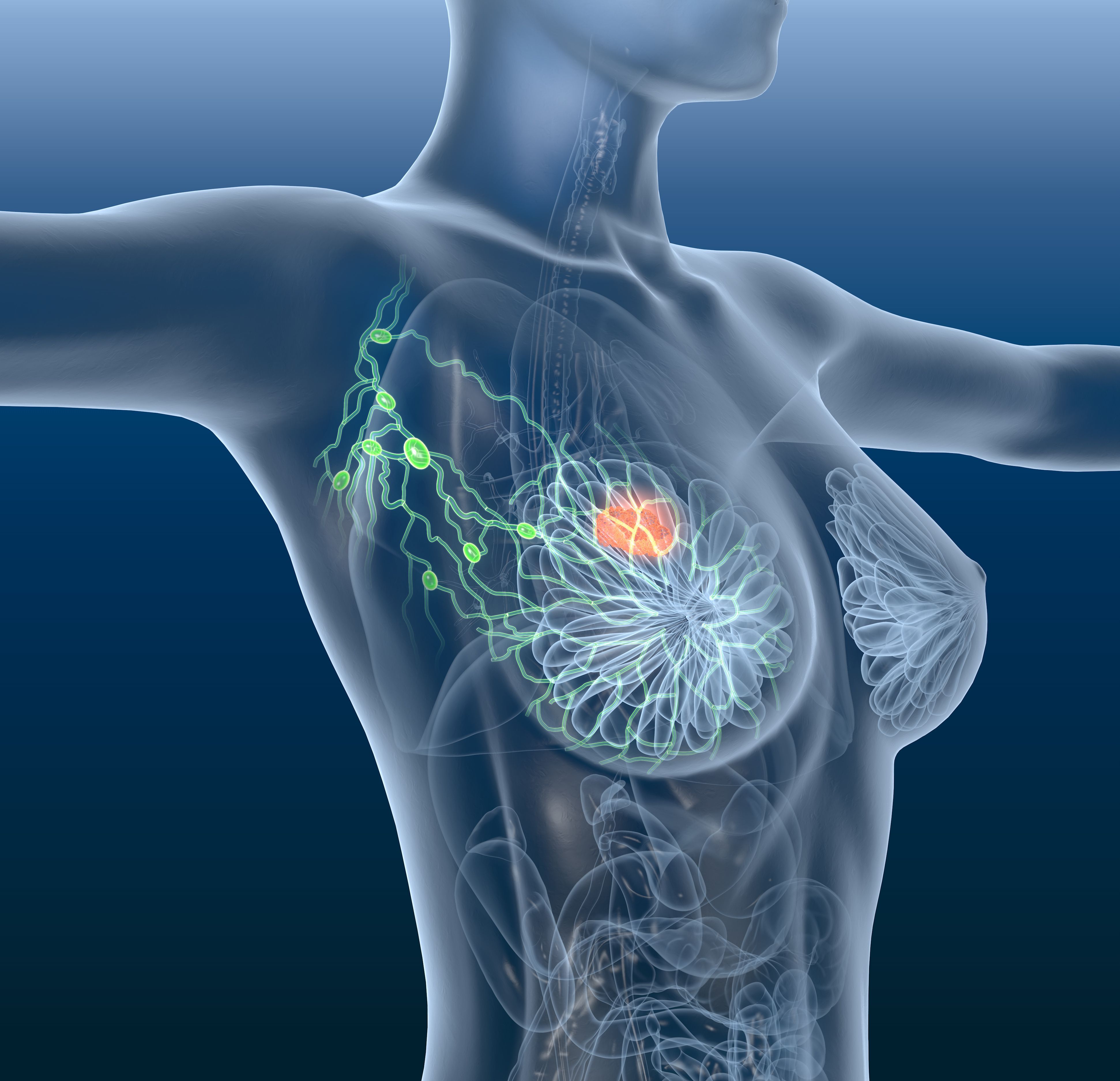Eganelisib Added to IMPASSION130 Doublet Improves Outcomes in Frontline mTNBC
With the addition of eganelisib to atezolizumab plus nab-paclitaxel, patients with metastatic triple negative breast cancer have longer progression-free survival and better response vs atezolizumab and nab-paclitaxel alone.

Eganelisib, a first-in-class, oral, immunotherapy, demonstrated improvement in progression-free survival (PFS) when added to atezolizumab (Tecentriq) and nab-paclitaxel for the treatment of patients with frontline metastatic triple negative breast cancer (TNBC).1
Findings from the phase 2 MARIO-3 study (NCT03961698) of eganelisib were announced in a press release by Infinity Pharmaceuticals, Inc. The study is investigating the primary end point of objective response rate (ORR) and secondary end points of the incidence of treatment-emergent adverse events (TEAEs), ORR, time to response, duration of response (DOR), PFS, and pharmacokinetics. Results were from 57 evaluable patients who were followed for a median duration of 10.0 months (95% CI, 8.1-14.2 months).
"Given our goal of improving long-term patient outcomes, we are particularly pleased to see that the addition of eganelisib to standard of care therapy showed benefit in the one-year progression free survival rate in MARIO-3 regardless of PD-L1 status," said Robert Ilaria, Jr., MD, chief medical officer of Infinity, in the press release. "These data reinforce the positive two-year landmark overall survival data from MARIO-275 in 2L urothelial cancer, also regardless of PD-L1 status, and the encouraging PFS observed in checkpoint inhibitor refractory squamous cell cancer of the head and neck in our MARIO-1 study, which all support the potential of eganelisib to improve long term outcomes for patients."
Of the patients treated in the study, 5 patients (61.4%) had PD-L1-negative tumors, 18 patients (31.6%) had PD-L1-positive tumors, and 4 patients (7.0%) had tumors of undetermined PD-L1 status. Results from patients in MARIO-3 were compared with the benchmark trial (IMPASSION130, NCT02425891). In the intent-to-treat (ITT) population of MARIO-3, the 1-year PFS was 36.0% (95% CI, 23.7-49.3) vs 23.7% (95% CI, 19.6-27.9) in IMPASSION130.
Among the 18 patients with PD-L1-positive tumors in the MARIO-3 study, the 1-year PFS rate was 37.5% (95% CI, 16.8-60.9) vs 29.1% (95% CI, 22.2-36.1) in IMPASSION130. The relative improvement was 52% in the MARIO-3 study vs a 29% improvement with the benchmark trial. Patients with PD-L1-negative tumors in the MARIO-3 study had a 1-year PFS rate of 34.7% (95% CI, 19.6-51.6) vs not reached in IMPASSION130, showing a 46% relative improvement in MARIO3 vs IMPASSION130.
Median PFS was shown in the PD-L1-positive and PD-L1-negative populations of both studies. In MARIO-3, patients with PD-L1-positive tumors achieved a median PFS of 6.4 months(95% CI, 3.6-not assessed [NA]) vs 7.5 months (95% CI, 6.7-9.2) in the benchmark trial. Among the PD-L1-negative patients, the median PFS in MARIO-3 was 7.3 months (95% CI, 5.2-13.3) compared with 5.6 months (95% CI, 5.5-7.3) in IMPASSION130.
The ORR observed in MARIO-3 was 66.7 with a 16.7% complete response (CR) rate. In comparison, the ORR in IMPASSION130 was 58.9% with a CR rate of 10.3%. The median DOR was 11.7 months (95% CI, 1.8-NA) in MARIO3 vs 8.5 (95% CI, 7.3-9.7) in the benchmark trial. In the PD-L-negative population of MARIO3, the median DOR was 7.4 (95% CI, 3.7-NA) vs not reached in IMPASSION130.
Safety results showed that the most common TEAEs observed were fatigue (48.4%), skin AEs (46.8%), nausea (45.2%), hepatic AEs (38.7%), and diarrhea (29.0%). The most common grade 3 or higher TEAEs were hepatic AEs (24.2%), neutropenia AEs (14.5%), peripheral neuropathy (11.3%), and skin AEs (11.3%). Notably, 74% of patients were able to remain on treatment with the MARIO-3 TNBC triplet regimen vs 81% of patients with the IMpassion130 trial. There were no new safety signals observed with eganelisib during the study.
REFERENCE:
1. Infinity Pharmaceuticals provides MARIO-3 update in patients with front line metastatic triple negative breast cancer suggesting potential long-term patient benefit of eganelisib. News release. Infinity Pharmaceuticals, Inc. November 14, 2022. Accessed November 15, 2022. https://bit.ly/3X4dDzP